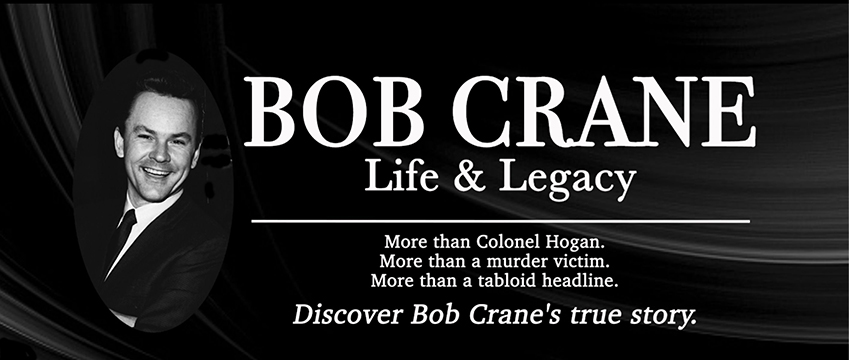As shocking as this may seem to some people, Bob Crane was more than Colonel Hogan, more than a murder victim, and more than the target of a posthumous tabloid scandal. He was a human being. And a good human being, too.
Hm. Imagine that.
Hm. Imagine that.
For instance, did you know that Bob Crane gave of his time and money, often and repeatedly, to good causes, charities, and specialty organizations? He entertained our troops by visiting military bases across the country and donated countless hours of his time to the United States Armed Forces Radio Network.
His good friend, Eliot Dober, from Bridgeport, Connecticut, was the Connecticut State Director for United Cerebral Palsy (UCP). Eliot talked with us about Bob's generosity to him and the Connecticut UCP. He told us that Bob returned to Hartford, Connecticut, throughout the 1970s to host the local portion of the UCP telethon. Producers of the national UCP telethon wanted Bob to stay in California to host the national portion. They offered him $20,000 to do it, too. In the 1970s, that was a nice sum of money—money he could have used. He was not exactly well off financially during the 1970s, even though he was a major television star.
But you know what? Money never meant a whole lot to Bob, but his family and friends did. Bob turned the national UCP producers down. Instead, he agreed to host the Connecticut UCP telethon for next to nothing, just travel expenses that he accepted from Eliot out of respect.
Bob did this regularly, not just for Eliot, but for many. And he did this because he genuinely cared about people.
On February 7, 1971, Bob Crane, along with Robert Clary, took part in a telethon that aired on WTMJ in Milwaukee, Wisconsin, to raise money for the Mount Sinai Epilepsy and Neurological Center. Below is a rare photograph from this telethon, along with the caption that accompanied it in the local newspaper (dated February 8, 1971).
 |
| WRAPPING IT UP — Radio and television personalities closed a 20-hour telethon Sunday with a song. Leading the singing in the Channel 18 studios was Robert Clary of the television show 'Hogan's Heroes.' Behind him were (left to right) Jack Lee, radio program manager for WTMJ; Robert Crane of 'Hogan's Heroes;' Angela Cartwright of TV's 'Make Room for Granddaddy;' and Ronald McDonald, a local clown. The show, sponsored by the Variety Club of Wisconsin, raised money to fight epilepsy. Proceeds from the show go to the Mount Sinai Epilepsy and Neurological Center. |
Never think that just because you read something in the tabloids or watch a dramatized biopic or a TV crime show that this is all there was to a person. Especially someone who is not here to defend himself. It's not all there is, and not by a long shot.
Human beings are complex creatures. Bob was as well, and imperfect, just like you and me. Everyone deserves to have his or her full story told. Part of Bob's legacy should be that he wanted to be good and to do good, and he did his best in that regard, despite being tripped up by human weakness.
As Bob Crane once said:
When I was a kid, I fell in love with Spencer Tracy in ‘Captains Courageous.’ That, to me, was the ideal. A good man, a brave man. What I would want to be. I’m still in love with that.
We're never going to change everyone's mind about Bob, and that's a shame. I'm proud I am Bob Crane's biographer and don't care if some people want to throw stones at me. Go on, then, if it makes you feel better. I can take it.
But as you think about yourself and the people you care about, you'll undoubtedly want the good aspects to be remembered—despite the flaws. And we all have flaws.
It's no different for Bob Crane.


